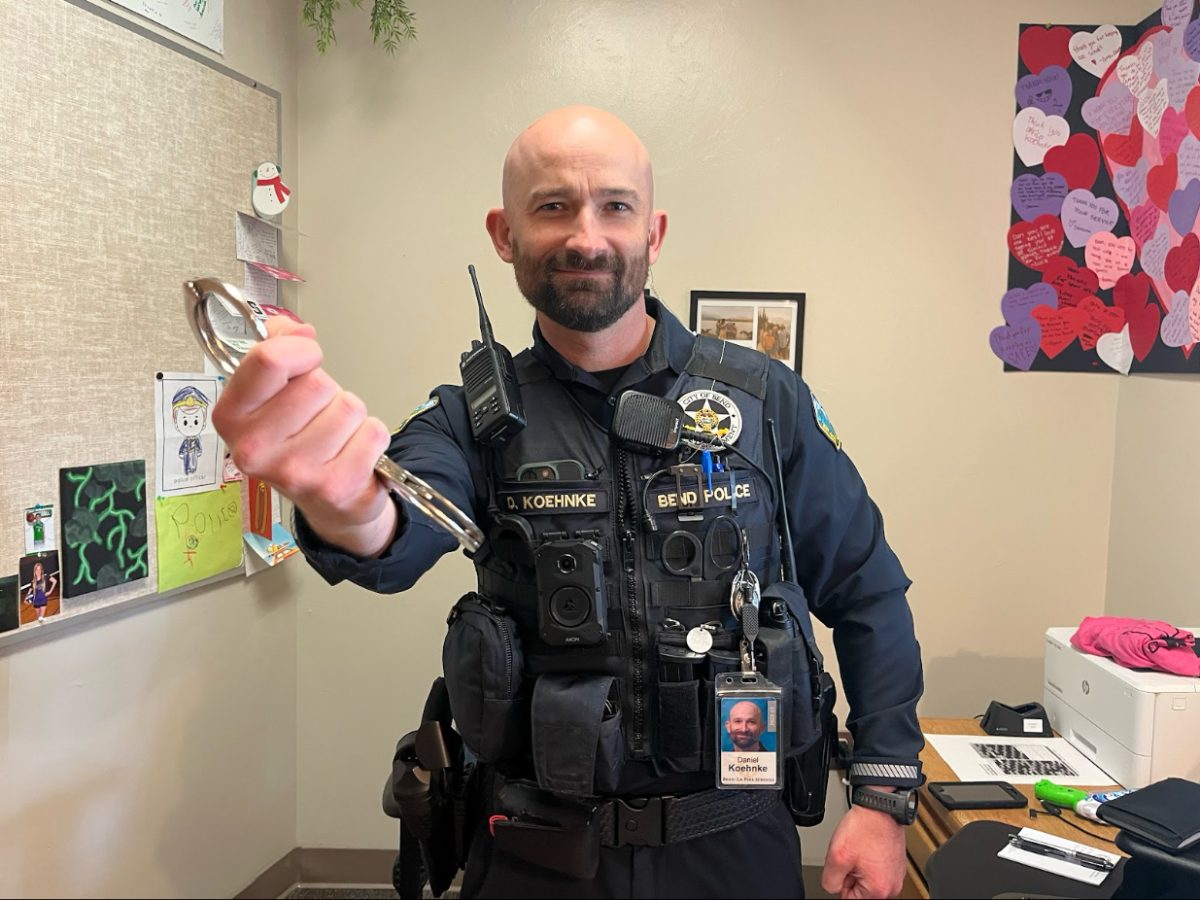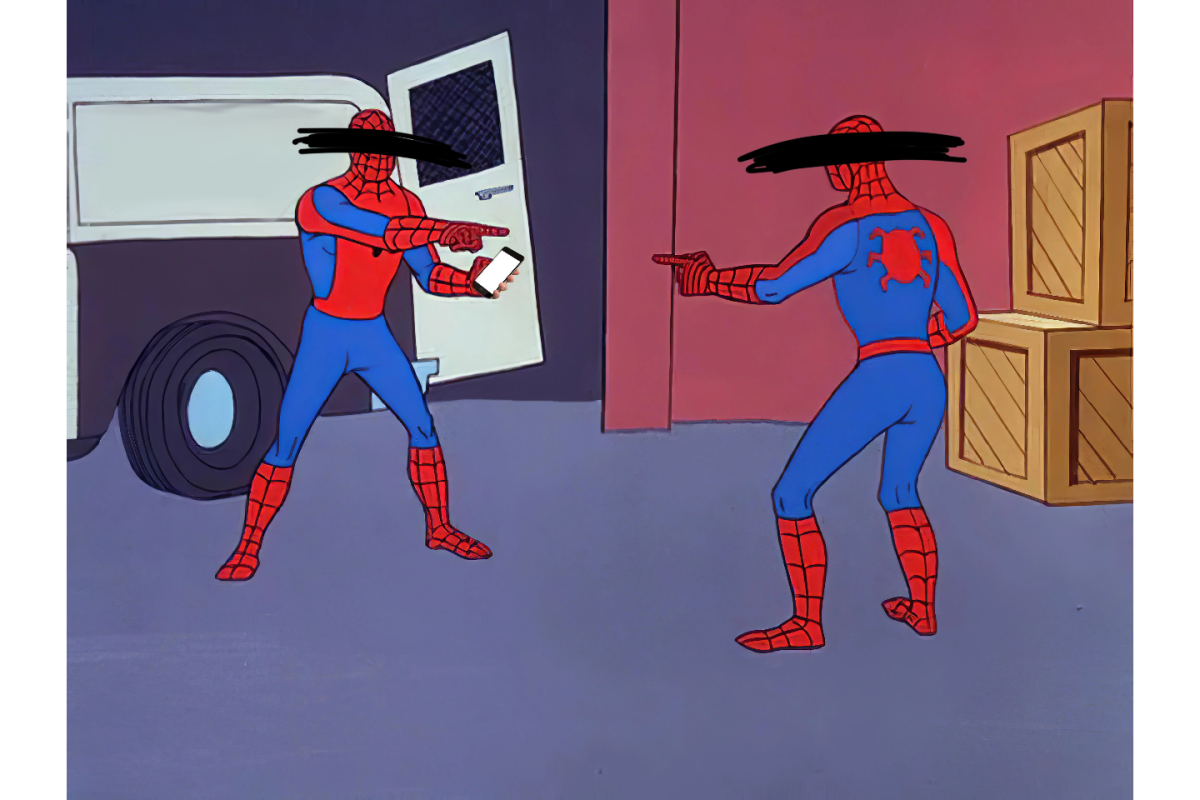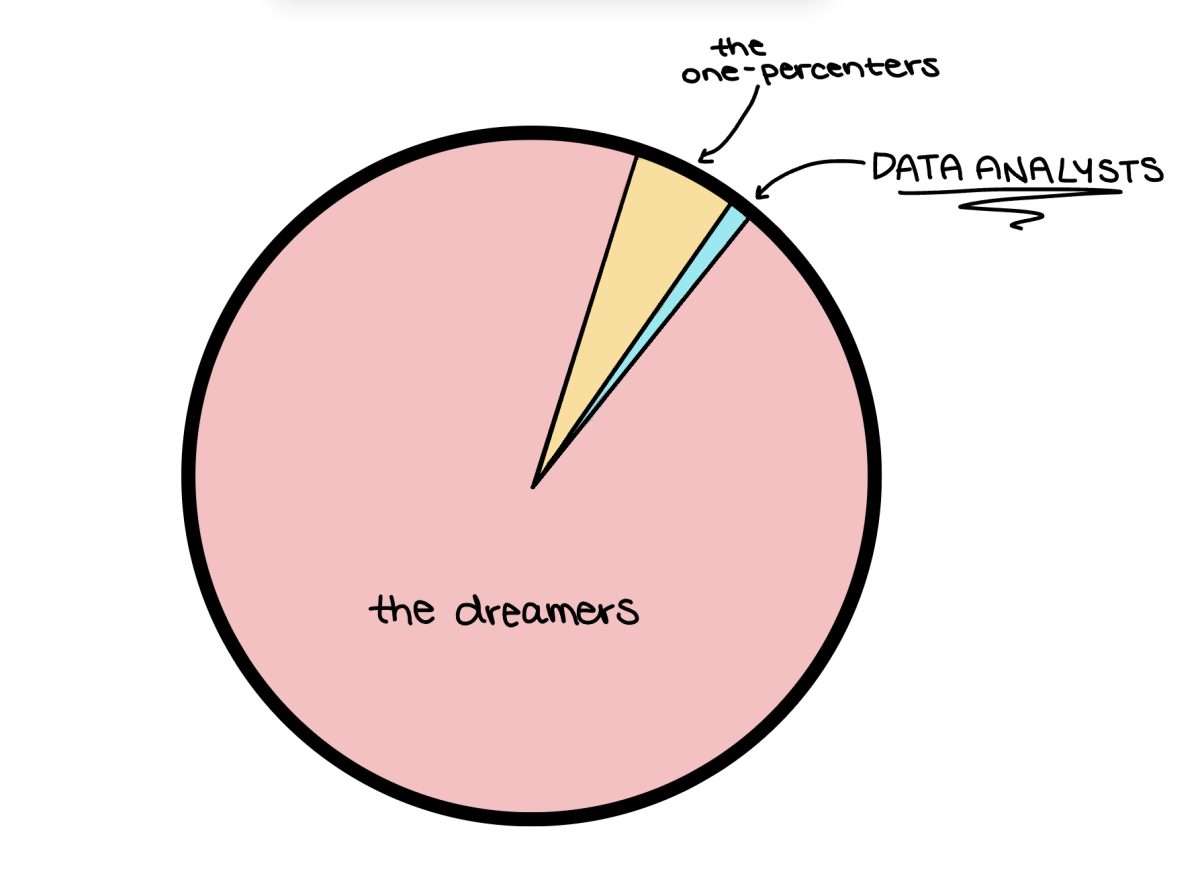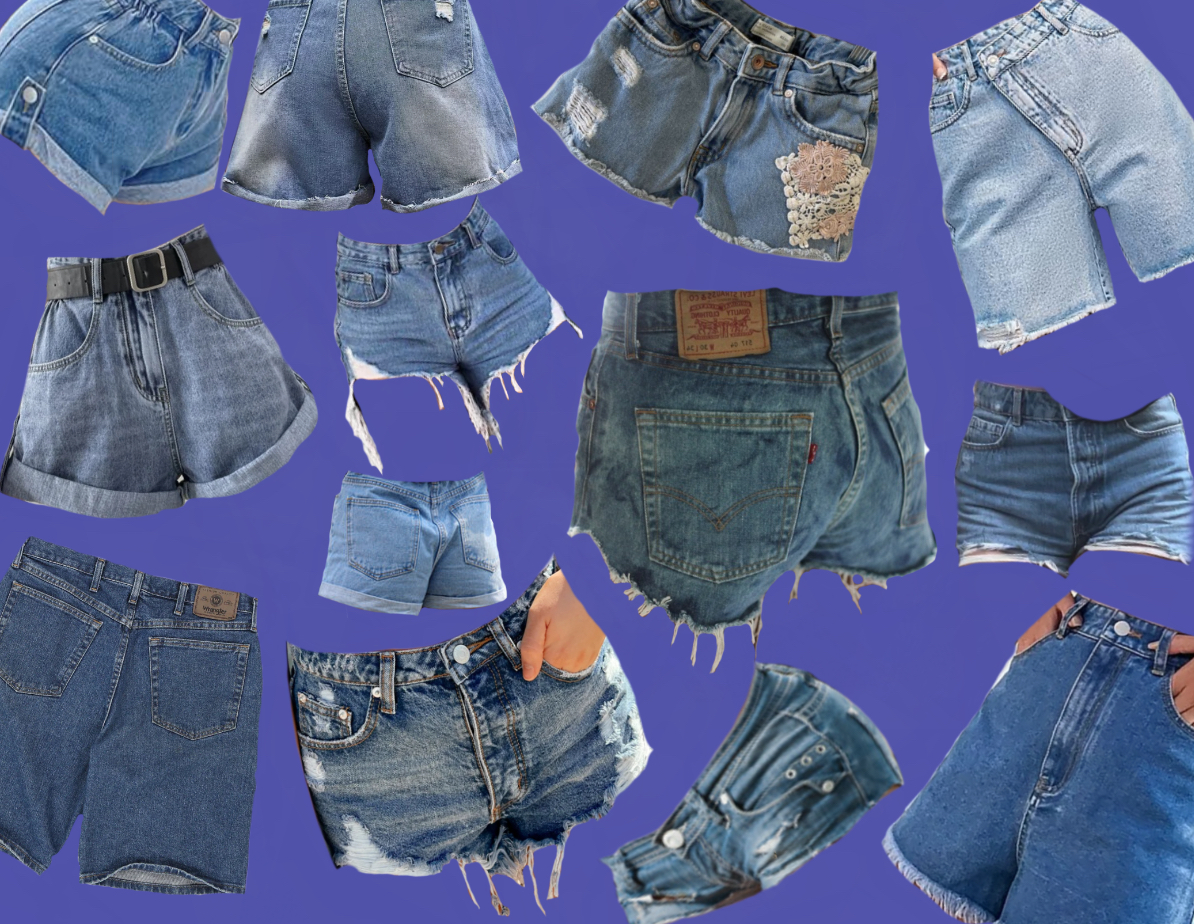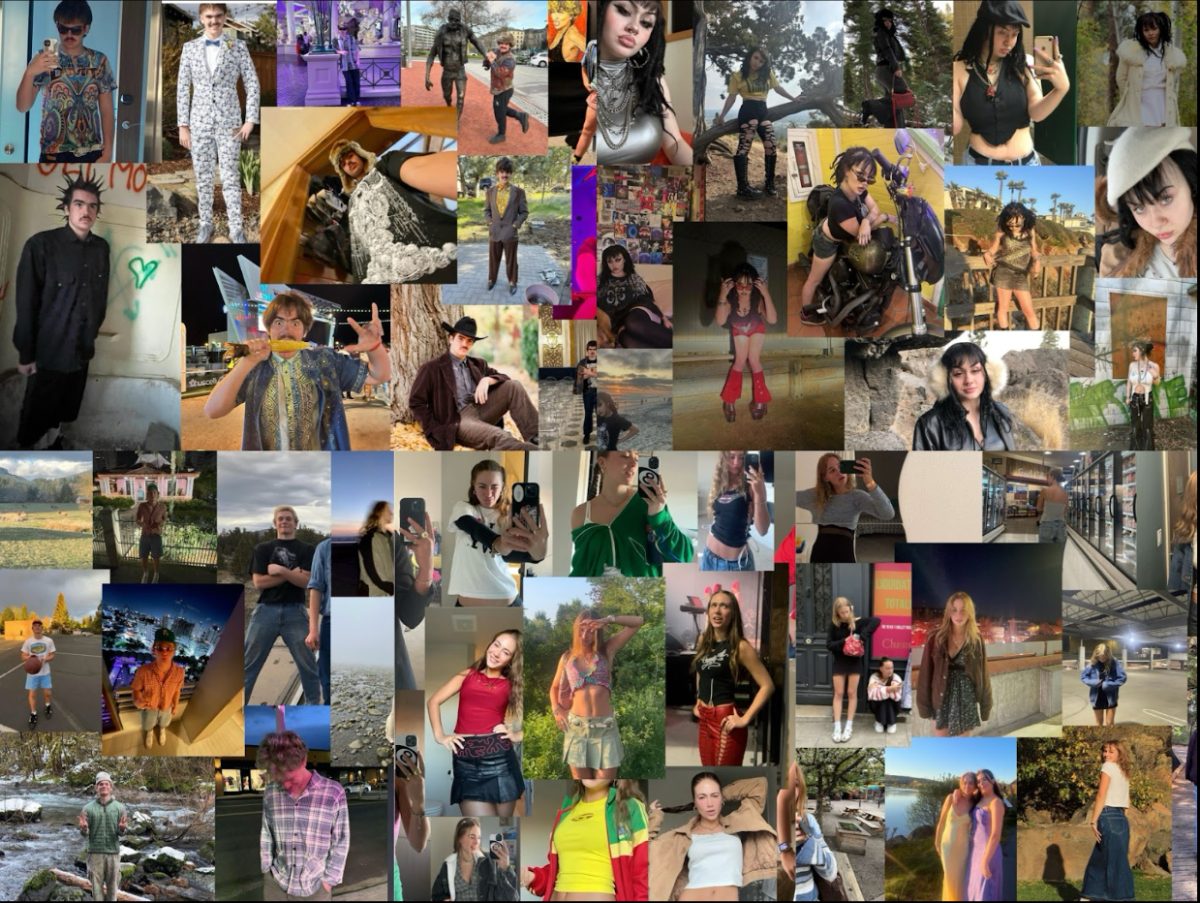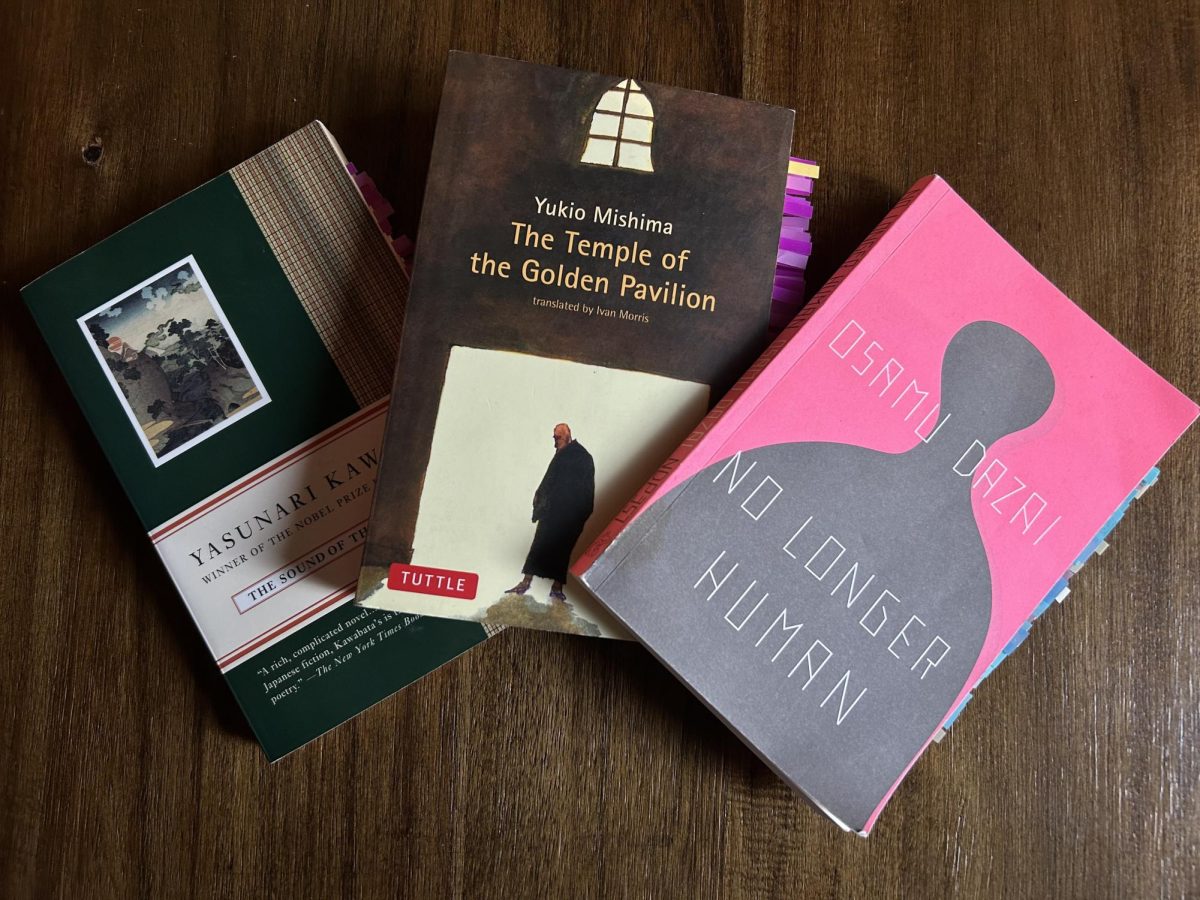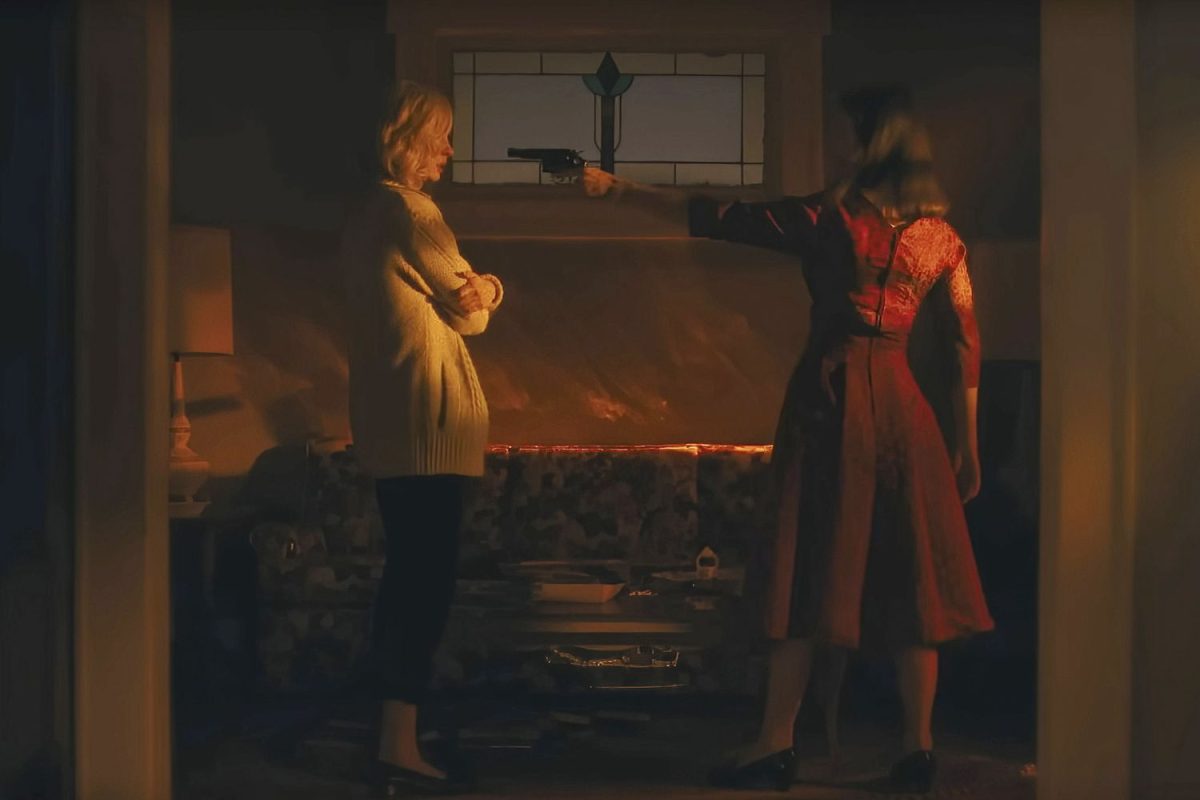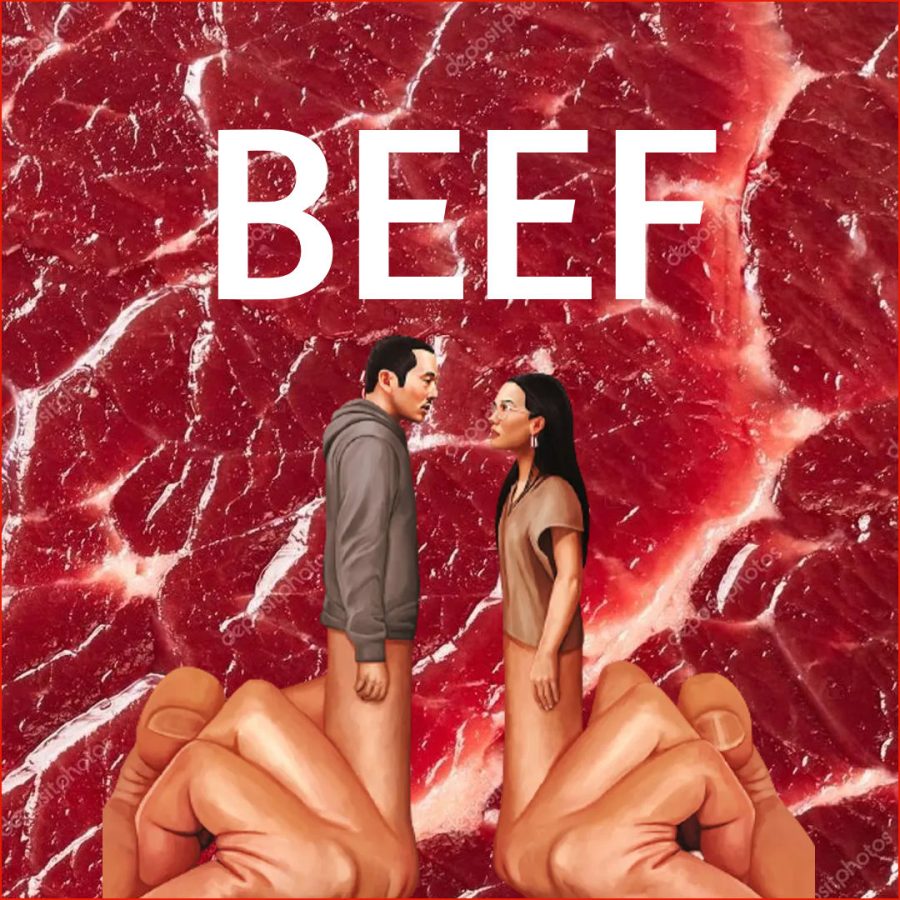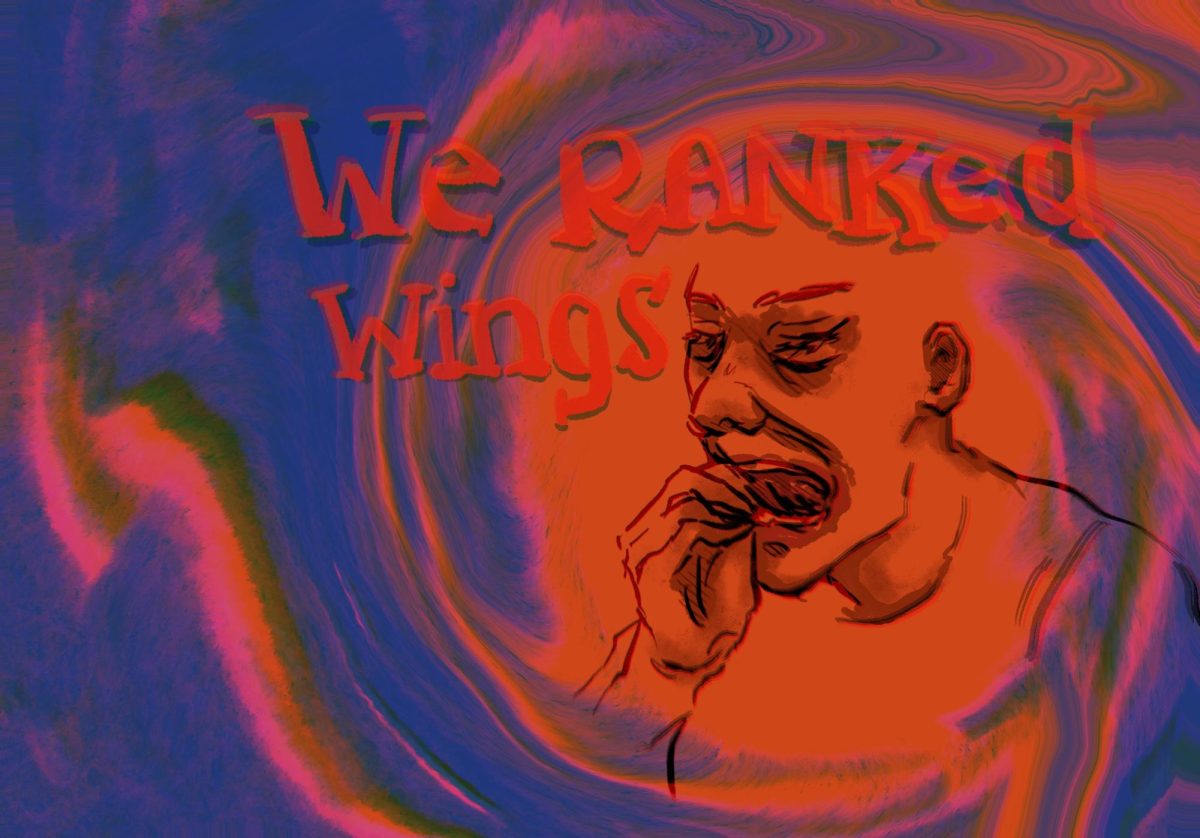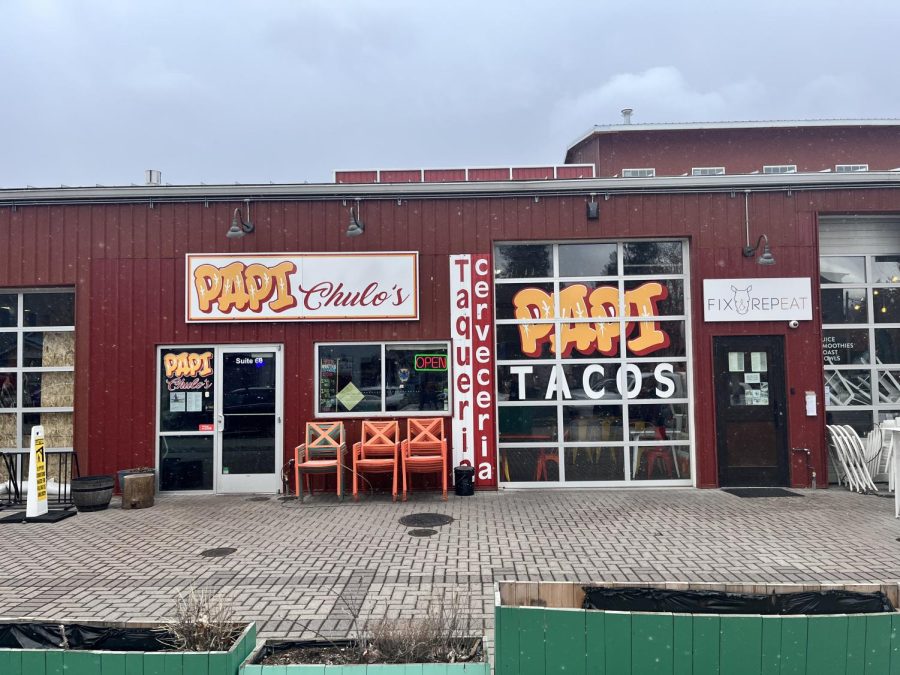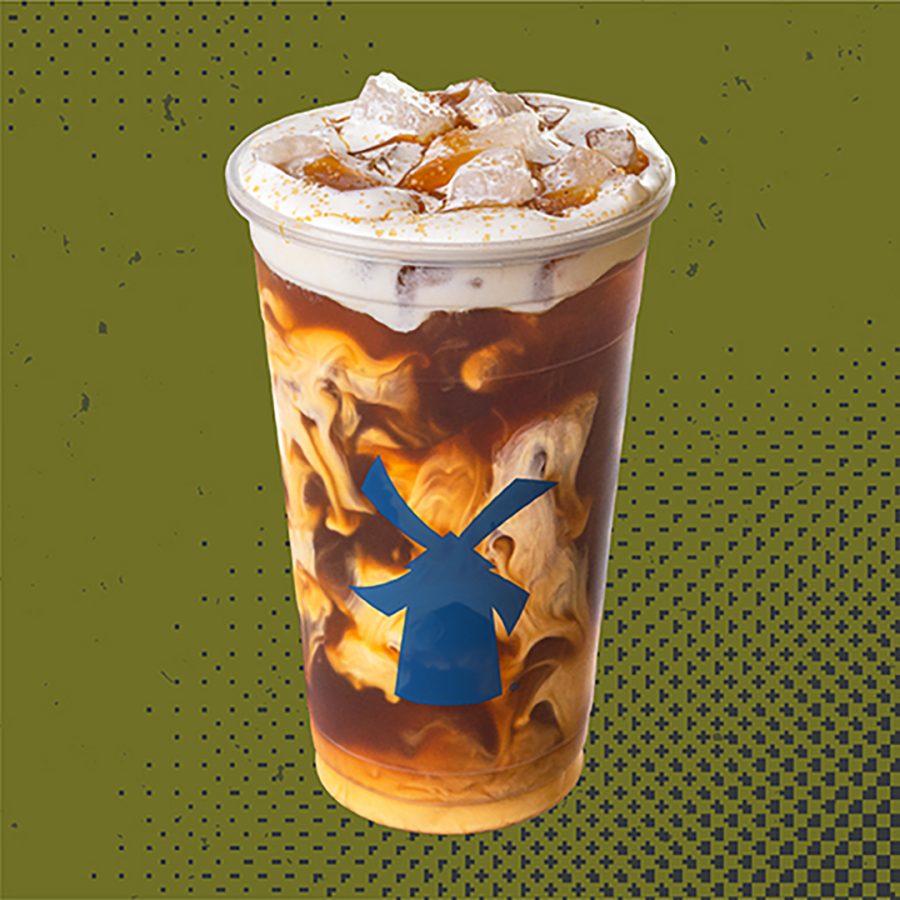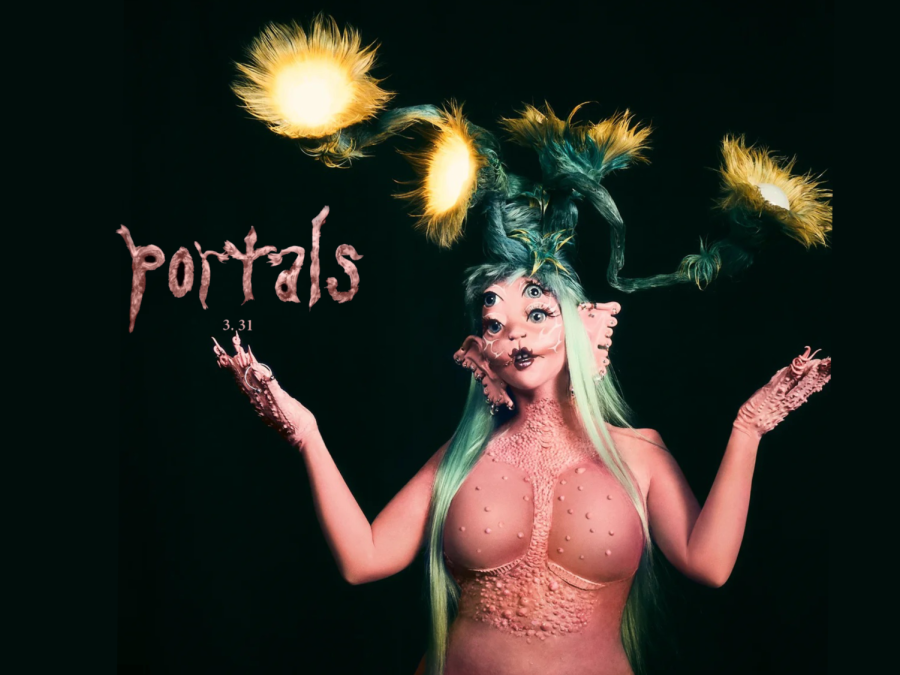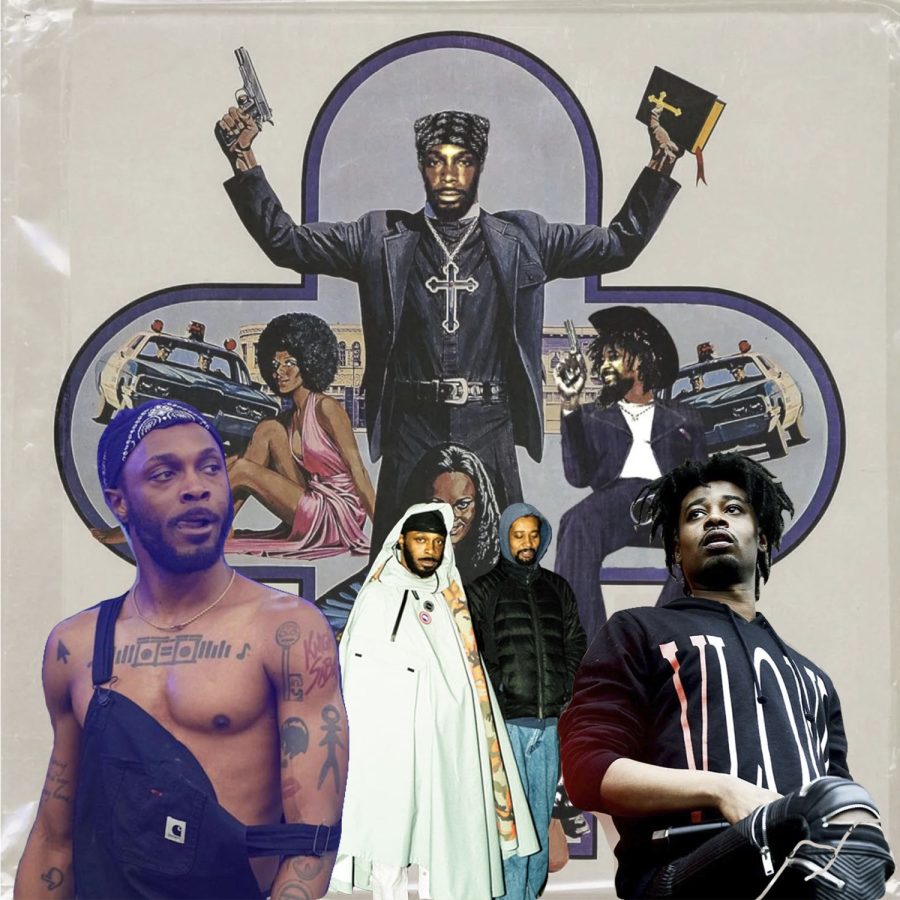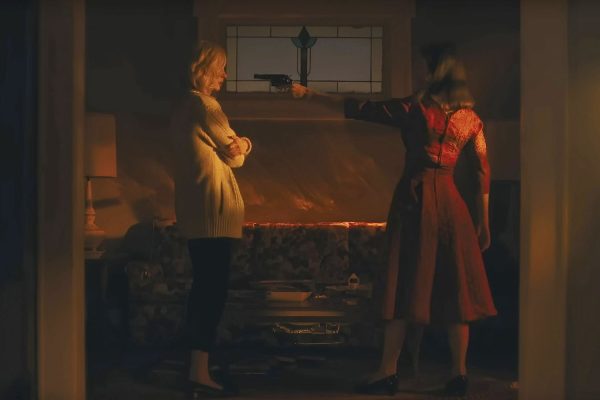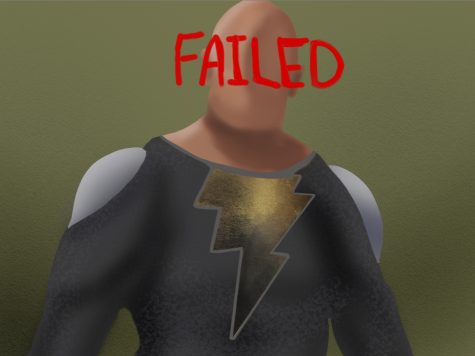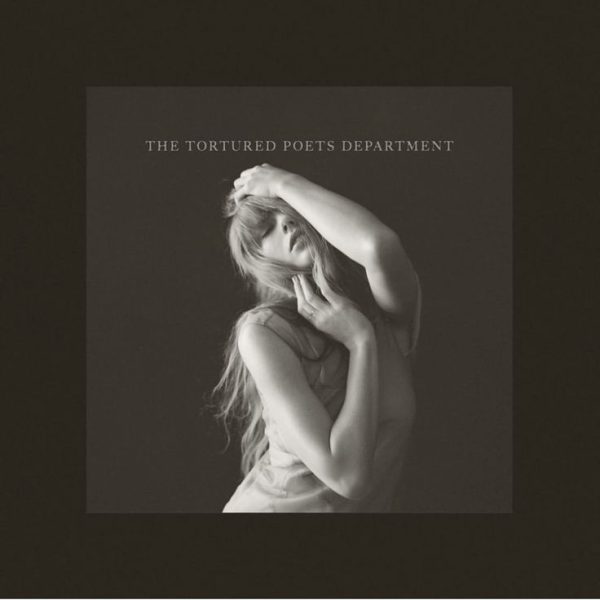A Show Vegans Can’t Watch
“Beef,” a series film critics won’t stop talking about
At the 2023 Oscars, A24 film “Everything, Everywhere, All At Once” received 11 nominations and took home seven awards. This achievement brought the production company to the forefront of both critics and film buffs’ minds. On April 6, Netflix released A24’s drama miniseries, “Beef” which reached number one on Netflix’s US top 10 list. Tackling themes of loneliness, poverty, jealousy and the struggles of immigrants, this new show encourages viewers to reflect on their own anger while still offering plenty of humor in a heart-wrenching way.
The opening scenes of “Beef” bring us into the parking lot of a hardware store after one of the main characters attempts, unsuccessfully, to return some items. A nearly avoided car accident turns the already stressful afternoon into a fast and furious style road rage incident, ending with memorized license plates and the beginning of a long complicated “Beef.”
Amy Lau, played by Ali Wong, is a sadistic breadwinner putting her livelihood aside in order to close a deal with the aforementioned hardware store while stoking the flames of her ongoing entanglement with fellow protagonist Danny Cho. Danny, played by Steven Yeun, is a broke, narcissistic contractor supporting himself and his brother, hoping to later help his parents immigrate from Korea. Both characters continue this beef in a seemingly never ending eye for an eye fashion.
STORY
In classic A24 style, the plot feels like a whirlwind of dramatic twists and raunchy humor. Although wildly entertaining, at times the dialogue can feel rudimentary or dull with the clear goal being only to advance the plot—much like many of the characters’ unnecessary decisions and unbelievable coincidences that leave their lives in pieces. Whereas most of the natural progression comes from the characters trying to patch the sinking ship.
The unfolding of this story feels like a slow ride up to the pinnacle of a roller coaster while you watch the supports and safety measures begin to fail. This trajectory is strikingly similar to HBO’s “White Lotus,” another vastly popular series that “Beef” may have taken notes from. This type of story arc can be very difficult to pull off, but after HBO’s success, Netflix bet on A24 to get it done. And, for the most part, they delivered. The story feels whimsical and chaotic, choosing to remain just outside the realm of reasonable possibilities, forcing viewers to question the judgment of themselves and those around him.
CHARACTERS
Danny and Amy, although continuously fighting and belligerently feeding their own egos’, finally have a moment of realization, coming to terms with their similarities. Initially each character becomes increasingly obsessed with their feud as it begins consuming their daily lives and important relationships. Both Danny and Amy hate themselves and their lives, yet perpetually self-sabotage their own growth—then complain about it.
Other characters throughout the show, such as Danny’s brother Paul, or Amy’s husband George, are simply pawns used against the protagonists, an additional example of their narcissistic tendencies. Throughout the show, Amy catfishes Paul and Danny befriends George simply to get back at one another, almost forgetting exactly what they were fighting for.
THEME
“Beef” touches on themes of family, revenge and mental health in a complex and unique way. In the beginning of the series, Danny buys portable grills in hopes to flood his home with carbon monoxide and kill himself—after discovering this was the least painful way to do so. Although he no longer wishes to exist, Danny is also scared to feel pain—a complex perspective of suicide. Initially the feud appears to be driven by a simple desire for revenge, but later becomes multifaceted as this malice slowly becomes a shared understanding or mutual respect. By exploring both Amy and Danny’s complicated family dynamics—something many watchers can relate to—the series is able to connect to the audience as well as give context to both character’s poor qualities, like narcissistic behaviors, immaturity, and overall selfishness.
PRODUCTION
Whether it be a deliberating jury of crows or on screen distortion to represent a psychedelic trip, the A24 style shines in this series. This production is what makes the studio’s work feel so unique, the subtle fourth wall breaks and tension breaking humor really make the show enjoyable for all, not just critics. “Beef” takes a page from many past works, most notably the artistic visual distortion from “The Green Knight” and hilarious personification borrowed from “Everything Everywhere All At Once.”
The cinematography in “Beef” is tasteful and deliberate, properly taking advantage of the beautiful filming locations and sets. Color palates and music help set up the contrast between characters, further immersing the audience into the story. From the very beginning, the show is filled with foreshadowing and hidden details that come back to haunt the characters as their lives unravel. A24 does a wonderful job of giving this show depth, but cluing the viewers in so they don’t get left behind.
CONCLUSION
Since the release of “Beef” the A24 hype has only grown, acquiring the recognition that, after watching just their new releases, it’s clear they deserve. With the success of the downward spiral story and psychedelic production styles, future movies and TV may see a momentary spike in similar media Although A24 will forever be remembered as a pioneer in the chaotic-drama comedy genre.

On an average day, you can find Bayla Orton procrastinating cleaning her room as well as writing her extremely well-planned college essay. She either smells like chlorine or pastries (often both) after...

Whether in snow or sun, Kian Warnock is always ready to find adventure nearby. Skiing, biking, and swimming are only a few of the hobbies Kian enjoys, and he is always looking for new activities to do....















